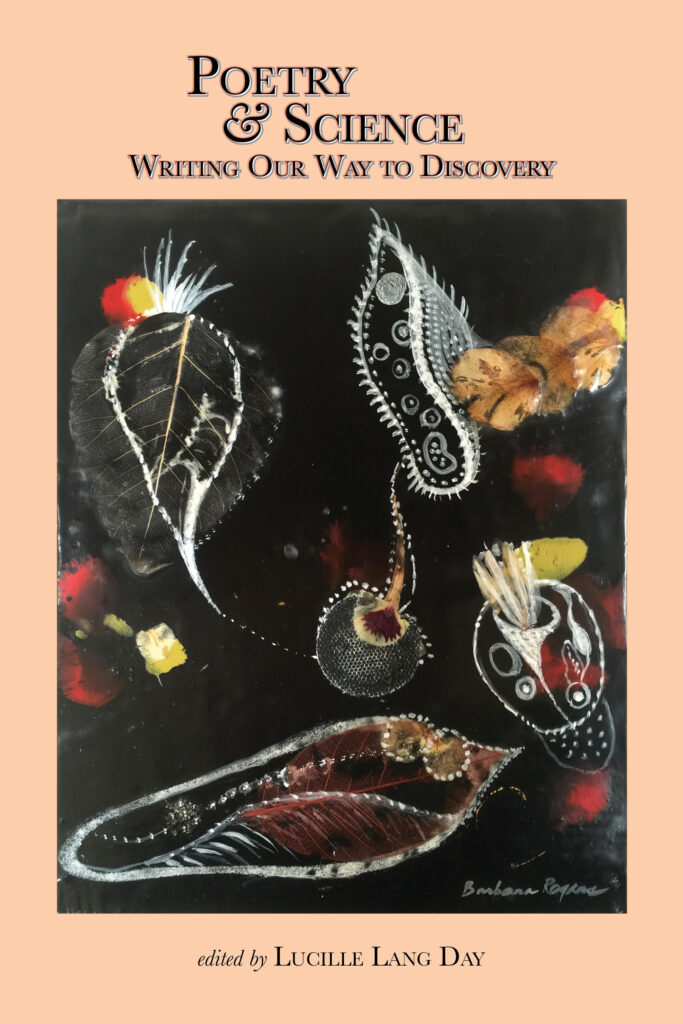Edited by Lucille Lang Day. Scarlet Tanager Books, 2021.
 By bringing science into poetry, we open the possibility of discovering new forms and philosophies of poetry, new perspectives on our relationship to the Earth and our place in the universe, and even new scientific insights. In Poetry and Science: Writing Our Way to Discovery, five women poets—Elizabeth Bradfield, Lucille Lang Day, Alison Hawthorne Deming, Ann Fisher-Wirth, and Allison Adelle Hedge Coke—discuss the many possibilities for discovery that arise from the union of poetry and science.
By bringing science into poetry, we open the possibility of discovering new forms and philosophies of poetry, new perspectives on our relationship to the Earth and our place in the universe, and even new scientific insights. In Poetry and Science: Writing Our Way to Discovery, five women poets—Elizabeth Bradfield, Lucille Lang Day, Alison Hawthorne Deming, Ann Fisher-Wirth, and Allison Adelle Hedge Coke—discuss the many possibilities for discovery that arise from the union of poetry and science.
“It is a privilege to sing the praises of Poetry and Science: Writing Our Way to Discovery. Five women poets discuss the thrilling connections between poetry and science in their poetry and lives and give the reader ample examples from their work and that of others. The curiosity of these poets is contagious, and reading the poems is a joy. As Lucille Lang Day says, poetry is ‘a medium for communicating the ideas of science and deepening our understanding of them.’ On our threatened, hurting planet, connecting with science and poetry has never been more essential.”
—Elizabeth J. Coleman, editor of HERE: Poems for the Planet
“This book of essays and poetry comes at a time when we most need more integration in our way of thinking about our connections to the natural world. Can we learn to see with the eye of a scientist and make cognitive leaps with the heart of a poet? These poets offer examples for how science has enriched their work and their capacity for wonder, and how poetry has deepened their relationships with the natural world. A must-read for poets and scientists both.”
— Melissa Tuckey, editor of Ghost Fishing: An Eco-Justice Poetry Anthology
“Where Poetry and Science particularly delights is in the personal nature of the pieces—how the poet-scientists and scientist-poets came to love science and poetry, how they are created by that broad mix and likewise help to further the discourse between and beyond the two. These are not, thankfully, just academic papers. They are, rather, personal essays supported by place- and science-rich poetry—they come from origin stories and conclude in what Alison Hawthorne Deming calls ‘applied poetics.’ They are captivating, masterful, essential.”
— Simmons Buntin, editor-in-chief of Terrain.org
